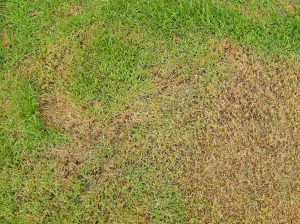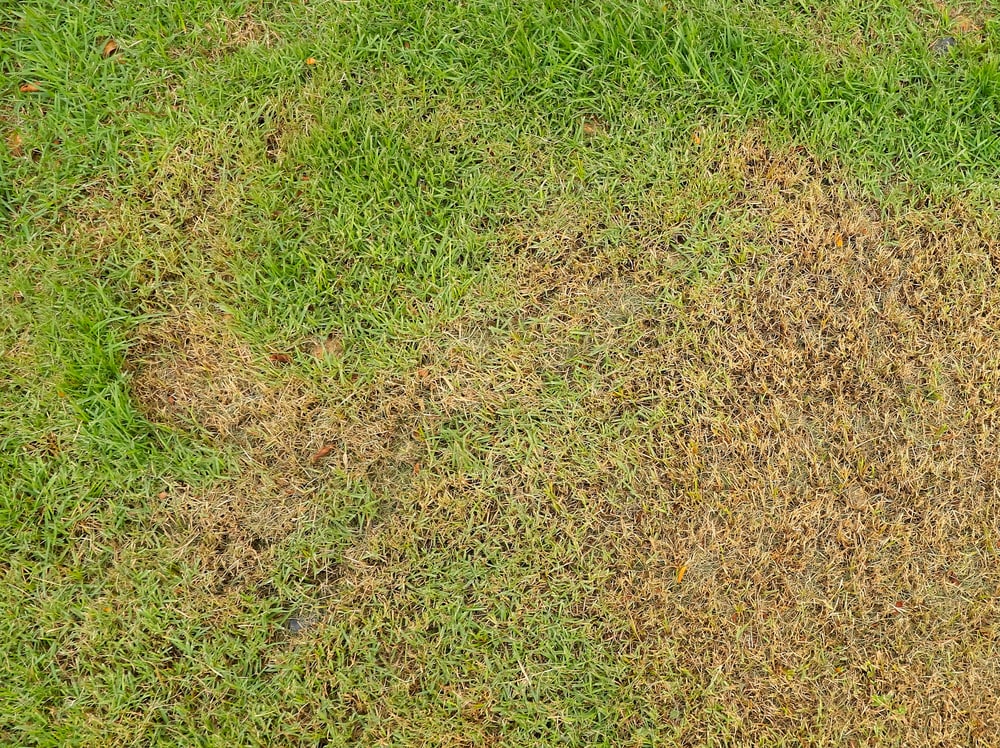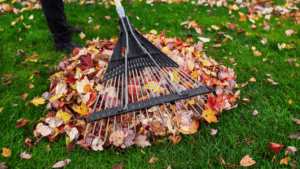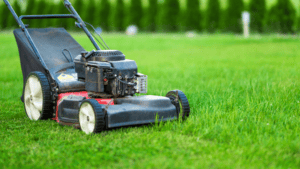You think you’re easily stressed… well, you got nothing when it comes to your lawn! Truth be told, it doesn’t take a whole lot to get your lawn into a high-stress situation. Do your lawn a favor and know the signs and causes of a stressed out lawn so you can correct the problem and maintain a healthy lush lawn.

Knowing the Signs of Stress
There are some telltale signs that your lawn is experiencing some stress and your intervention is required. Common signs of stress are:
- Yellowing grass
- Brown blades
- Blades don’t bounce back after stepped on
- Excessive holes in leaves around your yard
If you notice any of the above signs in your yard, then more than likely there is an underlying problem that you need to address.
Causes
Dull Mower Blade
Not only does a dull blade leave a bad cut because it rips the grass, leaving ragged tears but it also leads to the possibility of spreading fungal growth and/or disease. Before the start of any mowing season, make it a point to start with freshly sharpened blades to avoid problems.
Too Much or Not Enough Water
Discolored grass is a major sign that your grass is either over or under watered. Depending on the season, this is a problem that you can more than likely control unless you’re experiencing extreme rain.
Compacted Soil
Signs of compacted soil would be grass discoloration and grass blades not bouncing back when stepped on. Soil gets compacted from heavy and repeated traffic. To fix compacted soil, you can either till the area up if it’s a small area or for larger areas, aerate the yard.
Nutrient Deficiency
When your lawn is lacking in needed nutrients, then it’s hard to maintain a lush green lawn. To find out if your lawn is nutrient deficient, conduct a little science experiment to determine your lawn’s pH level. Depending on its level, you may need to add lime or sulfur to create a neutral environment so nutrients can be correctly absorbed. For instructions on how to test your soil, read our blog “What’s Your Lawn pH Level?”.
Extreme Temperature
Extreme heat or cold can affect your grasses ability to absorb the needed nutrients. Extreme heat, in particular, can dry out grass leaving it brown and stiff like straw.
Insect Infestation
If leaves in your yard and landscape have holes or appear to be chewed up, you more than likely have some sort of insect infestation that can affect the health of your lawn. Do some digging to find out specifically what the problem is and then find the correct spray to deter the pests away.
For more help on maintaining a lush green lawn, stop in to talk with the experts at Snappy’s!



